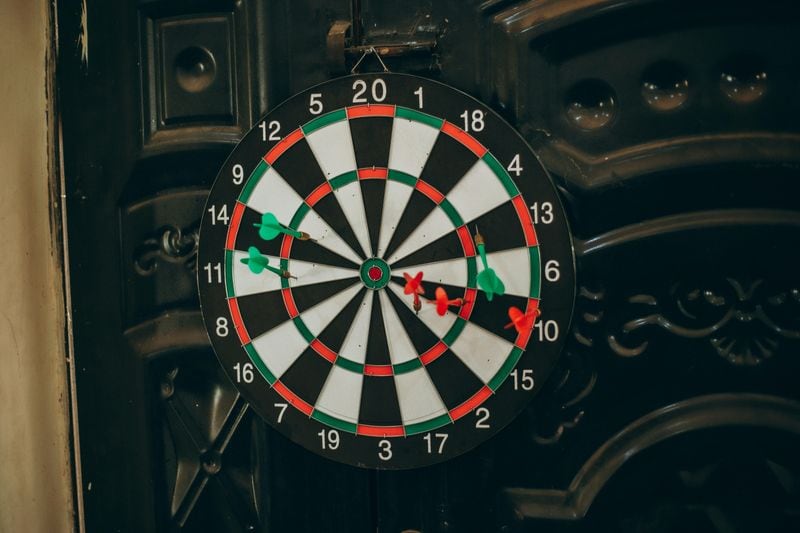Finding the right partner can feel like searching for a needle in a haystack. While everyone has flaws, certain behavior patterns can signal serious relationship problems down the road.
Understanding these warning signs helps you make smarter choices about who you spend your life with and saves you from potential heartbreak.
1. The Manipulator
Manipulation tactics come in many disguises – guilt trips, emotional blackmail, or subtle threats to withdraw affection. These women skillfully twist situations to get their way, making you question your own judgment and feelings.
You might notice yourself constantly apologizing for things you didn’t do wrong or walking on eggshells to avoid upsetting her. This behavior creates an unhealthy power imbalance where your needs always come second.
Over time, this erodes your self-confidence and independence. Healthy relationships involve honest communication and compromise, not psychological games designed to control your behavior or thoughts.
2. The Drama Queen
Life with a drama queen feels like riding an emotional roller coaster that never stops. Small problems transform into major catastrophes, and every disagreement becomes an explosive argument that might last for days.
Friends and family start avoiding both of you because gatherings often end in some kind of scene. The constant emotional intensity drains your energy and makes relaxation impossible.
Behind this behavior often lies a deep need for attention and validation. Unfortunately, meeting these endless emotional demands becomes exhausting, leaving no room for your feelings or a peaceful home life.
3. The Narcissist
Conversations with a narcissistic partner always circle back to her achievements, problems, or desires. Your experiences and feelings barely register unless they somehow relate to her.
Birthday celebrations, vacations, and even daily decisions revolve around her preferences. She might show charm and attentiveness early in the relationship, but this mask slips once she feels secure.
The missing ingredient? Empathy. Without the ability to truly care about your feelings or perspective, she creates one-sided relationships where her partner exists mainly to provide admiration and support while receiving little emotional nourishment in return.
4. The Jealous Guardian
At first, her jealousy might seem flattering – proof she truly cares. Soon, innocent conversations with coworkers or old friends trigger accusations and interrogations about your loyalty.
Phone checks become routine, and social outings without her cause major tension. Your social circle shrinks as she views every outside relationship as a potential threat to your bond.
This suffocating behavior stems from deep insecurity rather than love. True affection includes trust and respects your need for other healthy connections. Partners who can’t overcome their jealousy create isolated relationships built on suspicion rather than genuine trust.
5. The Commitment Dodger
Just when the relationship deepens, she creates distance through subtle or obvious means. Plans for the future remain vague, and attempts to define the relationship lead to evasive answers or sudden conflicts.
She might disappear emotionally or physically for days, then return as if nothing happened. This push-pull pattern keeps you perpetually uncertain about where you stand.
Fear drives this behavior – fear of vulnerability, loss of independence, or repeating past relationship pain. While understanding her hesitation helps, a fulfilling partnership requires someone willing to work through these fears rather than letting them sabotage connection.
6. The Chronic Critic
Nothing ever meets her standards – your cooking, clothing choices, career achievements, or how you load the dishwasher. What begins as occasional “helpful suggestions” evolves into a constant stream of corrections and disapproval.
Public criticism particularly stings, as she points out your flaws in front of friends or family. You start second-guessing your decisions and abilities, even in areas where you once felt confident.
Constructive feedback has its place in relationships, but partners who criticize more than they compliment create an atmosphere of inadequacy. This negative focus gradually destroys intimacy and replaces affection with resentment.
7. The Emotional Vacuum
Sharing vulnerable feelings with her meets with blank stares or quick subject changes. During your difficult moments, her comfort attempts feel mechanical rather than genuinely caring.
Major life events – job losses, family deaths, personal achievements – receive minimal emotional response. You find yourself handling life’s challenges essentially alone, even with a partner physically present.
This emotional unavailability often stems from her own past wounds or family patterns. However, emotional connection forms the foundation of intimate relationships. Without this crucial element, partnerships become practical arrangements lacking the warmth and understanding that sustain love through life’s challenges.
8. The Responsibility Shifter
Mistakes and problems always have external causes in her world. Late for dinner? Traffic was terrible. Forgot your birthday? Work was too stressful. Hurtful comment? You’re just too sensitive.
Financial difficulties result from “bad luck” rather than spending habits. Relationship problems stem from your shortcomings, never hers.
This refusal to acknowledge personal responsibility makes problem-solving impossible. Without recognizing her role in creating issues, she can’t participate in fixing them. Long-term relationships require partners willing to own their mistakes and grow from them – something responsibility shifters actively avoid.
9. The Privacy Invader
Boundaries mean little to her – she reads your texts, monitors your social media, and questions your whereabouts constantly. What begins as “just caring about you” transforms into surveillance that leaves no room for personal space.
Private conversations with friends or family get interrupted or interrogated afterward. She might “surprise” you at work or show up uninvited when you’re with friends.
This controlling behavior reflects profound insecurity rather than love. Healthy relationships balance closeness with respect for individual privacy. Partners who can’t honor these boundaries create relationships that feel more like prisons than safe havens for authentic connection.
10. The Scorekeeper
Every favor, gift, or kind gesture comes with invisible strings attached. She keeps detailed mental records of who did what in the relationship and frequently reminds you of past imbalances.
“I watched your favorite movie last week, so tonight we’re doing what I want.” “Remember when I drove you to the airport at 5am? You owe me.”
This transactional approach transforms love into a business arrangement where every act of kindness becomes currency for future demands. Genuine relationships involve giving without constant calculation, understanding that perfect equality in every moment isn’t possible or necessary when both partners care about each other’s happiness.











